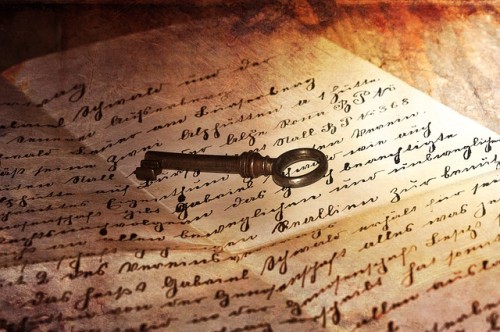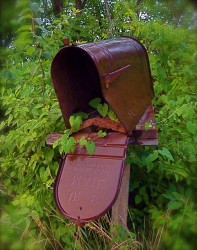by Anupama Krishnakumar
When was the last time I received a handwritten letter? I realise it’s been 12 to 14 years. Yes, it’s been long. That long. The more disturbing revelation of this reflecting process, however, is that it has been an equal number of years or even more since I have written a letter by hand myself.
I wonder if I have fallen a victim to a sad trend. Because I don’t realise how and why exactly I let go of writing letters. Or for that matter, why those known to me – the ones who shared my great love for the handwritten letter, also stopped it someday. Perhaps we all fell head over heels in love with email. And then SMS. And then Facebook and Twitter. And then WhatsApp. The possibilities they offer, the immediacy of dispatch or receipt that they boast of – the electronic world has held us in its thrall.
I painfully realise that email and WhatsApp have made me impatient and hooked in a bad way – in a way I had never known. And that’s perhaps what happened to the others too. So, somewhere in between, the dear, delicate, nostalgic, heart-warming letter waited patiently in the hope that it would be brought back into the folds of our electronically-cluttered lives but once it realised we didn’t do much about it, the letter fluttered away thinking that we would miss it one day with pangs of guilt as a punishing side-effect. We lost the handwritten letter gradually. It left quietly through the backdoor.
Simon Garfield, author of ‘To the Letter: A Curious History of Correspondence’, writes this about his book. “This book is about what we have lost by replacing letters with email – the post, the envelope, a pen, a slower cerebral whirring, the use of the whole of our hands and not just the tips of our fingers.” In the process of reading this book, I couldn’t stop myself from going down memory lane.
The real joy of letters is experienced when one is away from home. For me, the occasion came when I was a quiet yet spirited 17-year-old who was determined to go to Pilani, a small town in Rajasthan, to pursue an engineering degree. Destiny ensured that my dream came true. The possibility of living away from home, all by myself, managing my life on my own excited me beyond words. In fact, I wrote letters to my relatives excitedly describing to them, my new life in a new place. When I saw other freshers worried and lost, I wondered why they were doing this to themselves. It took me a couple of months to realise that sometimes thoughts and memories of those back home cannot be relegated to a corner of your mind always. They come bouncing back, roaring, especially when you face the first challenge of your life, all alone.
A few months into the first semester, when I realised that subjects weren’t as a cakewalk as I had imagined them to be, the trauma slowly seeped in. And for the first time, I missed home, in the real sense. I waited in a long queue, at the hostel telephone booth, for my turn to call up and speak to my parents. I cribbed, I choked, I wept silently. My mother grew concerned, my father tried to stay calm but was perturbed nonetheless. This wasn’t turning out to be all that rosy. The hiccups had arrived. All too soon.
And so did the first ever letter for me from home after I had left home. It was in a small postal envelope that bulged quite a bit owing to the number of sheets inside. There was no way I would miss my father’s handwriting and the moment my eyes fell on the envelope in our hostel’s visiting room (where all the mails were sorted and put into slots meant for groups of room numbers), my heart raced. It leapt up in joy and wept silently too. I grabbed the envelope with my hands and rushed to my room, sat on my bed and began reading – almost ten sheets of paper torn from an old diary. My father had written, so had my mother and my paternal grandfather, each of them encouraging me and motivating me in their own ways. And by way, I mean, their way of thinking, their reasoning and eventually, their way of expressing their affection for me, no matter what.
Father’s response was carefully worded, well-reasoned, well-analysed. Mother’s was typically mother’s – Was the food good? Were they serving rasam in the hostel canteen? How were my friends? Had I settled down? She touched upon my academic performance only briefly, saying all would be well soon. My grandfather, teacher that he was, ended his letter with a motivational quote that said nothing was impossible.
This particular letter is something that I hold on to dearly even now, 17 years after I received it. It has travelled to all places with me as I moved about changing jobs, houses and cities. Even today, it brings back fond memories. What’s more beautiful is that the advice penned there holds good even now after all these years.
When I was in college, correspondence didn’t stop with letters. Along with them came the delightful and colourful greeting cards of varying sizes on special occasions. Birthday Cards from uncles, aunts, cousins – they would arrive three or four days before the D-day and kick in the birthday mood! Little notes, closing off with their personal signatures – nothing beat the personal touch that such a gesture brought. I still have every single card that I had received during my four-year stay at Pilani. These letters and cards bridged the geographical gap for me at a time when emails and mobile phones were a matter of scientific wonder.
Letters are such beautiful devices to express oneself. My college years saw my friends and me exchanging little notes and greeting cards with memorable messages that were handwritten. Time erodes memories. You can never know it all to the tiniest detail. We forget certain things over the years. A few months back, I revisited my packet of greeting cards and letters that are a little over 12 years old and I lost myself in a whirlpool of nostalgia reading notes written by my close friends. It opened up a treasure trove of memories. In spite of the many ways in which life has changed since then, the affection in them made me feel warm and thankful for their presence in my life. Well, the magic of the handwritten word cannot be denied! Like Simon Garfield rightly points out, “Letters have the power to grant us a larger life…..they change lives, they rewire history.”
From the beginning of 2000, email began to make way into my life and admittedly, I was smitten. We began inventing fancy email IDs, sharing them with all and chatting up on Yahoo! Messenger. The occasional letter and the card would arrive but taken in by the immediacy of the email, one only forgot the joy of waiting. The joy of waiting for a letter to arrive. Even today, as much as I fondly look back at the art of letter writing, I can’t convince myself to sit down and write one. I am sometimes bewildered by how much my mind is conditioned to this whole drama of instant communication, in spite of revisiting old letters, time and again. My weakness, perhaps, is my curse.
To quote again from ‘To the Letter’, “The world once used to run upon their transmission – the lubricant of human interaction and the freefall of ideas…..it must have seemed impossible that their worth would ever be taken for granted or swept aside.” It’s kind of sad that this has happened, that this is today’s reality. But perhaps it’s never too late to make up. It’s never too late to retrace our steps and revive an essential but dying art form. It’s never too late to make a beginning. All it takes is a pen, a piece of paper, some love and a great deal of patience. And an earnest you.






